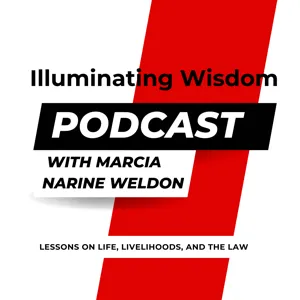Podcast Summary
Understanding and Overcoming Procrastination in Our Twenties: By recognizing the reasons behind our procrastination and implementing practical strategies, we can overcome this habit and stay focused on our goals and dreams.
Procrastination is a common behavior in our twenties and can stem from various factors such as academic anxiety, overthinking, perfectionism, boredom, lack of impulse control, and negative coping skills. It is a guilty pleasure that momentarily distracts us from stress, but we often regret it later on. The psychology behind procrastination is complex, as it involves the intention-behavior gap where we have the desire to do something but struggle to actually do it. It is important to be aware of why we procrastinate in order to bring it under control. By understanding the reasons behind our procrastination and implementing practical strategies, we can overcome this habit and stay focused on our goals and dreams. Laziness and procrastination are not the same; procrastination involves wanting to complete the task but struggling to start or finish it.
The effects of procrastination on mental and physical well-being: Procrastination may provide temporary relief, but it can lead to decreased productivity, guilt, stress, anxiety, and a decline in academic performance. It's important to understand that procrastination does not determine our worth or abilities.
Procrastination is a temporary solution to avoid stress and overwhelm, but it can become a chronic habit that negatively affects our mental and physical well-being. While it may seem like a way to prioritize tasks, procrastination often leads to a loss of productivity and a sense of guilt. It can also result in health problems such as stress, anxiety, and a decrease in academic performance. Task-based procrastination, such as delaying work deadlines or studying, is particularly common among students. However, it is important to recognize that procrastination is not always within our control and does not define our worth or abilities.
Managing emotions over time: Procrastination is driven by a fear of uncomfortable emotions, leading us to prioritize short-term mood repair instead of completing important tasks.
Procrastination is more about managing our emotions than managing our time. It often stems from our fear of dealing with uncomfortable or challenging emotions in our relationships. We may avoid confrontational messages or conversations, hoping to delay the negative emotions that may arise. However, this short-term mood repair leads to negative consequences in the long run. Procrastination tricks us into prioritizing immediate emotional relief over completing important tasks. We may use negative coping skills, such as avoiding the task's location or engaging in delusional thinking. Additionally, we may elevate the satisfaction of other activities, like socializing, as an excuse not to complete our responsibilities. This pattern of avoidance stems from our reluctance to confront stress and acknowledge the overwhelming nature of starting a task.
Understanding the Causes and Consequences of Procrastination: Procrastination is often fueled by the desire for immediate pleasure, fear of failure, and perfectionism. Recognizing these factors can help overcome procrastination habits.
Procrastination can stem from various factors such as boredom, the pleasure principle, poor impulse control, and perfectionism. Boring and tedious tasks often lack immediate gratification, leading us to seek immediate pleasure from activities like scrolling through social media. This desire for instant reward and the inability to resist appealing distractions contribute to procrastination. Additionally, the fear of failure and not meeting high standards can paralyze perfectionists, causing them to delay starting tasks. Procrastination becomes a negative cycle where the more we distract ourselves, the worse the situation becomes, leading to further procrastination. Understanding these underlying factors can help individuals address and overcome their procrastination habits.
The Perfectionist's Dilemma: How the Pursuit of Flawlessness Leads to Procrastination: Perfectionism can fuel procrastination by causing internal conflict, overwhelming feelings, fear of mistakes, and difficulty prioritizing. It is often driven by a fear of failure and the need to measure up to others.
Perfectionism is often the underlying cause of procrastination. Perfectionists have a strong desire to be the best and flawlessness becomes their main focus. However, this obsession with perfection creates internal dissonance and leads to feelings of overwhelm and reluctance to start tasks. Perfectionists become fixated on minute details and feel compelled to complete unrelated tasks before beginning the main task at hand. They fear making mistakes and would rather not try at all than risk failure. Furthermore, perfectionists often overcommit and struggle to prioritize, leaving little time to excel in one particular area. Academic procrastination is often linked to a fear of failure in front of others and a constant need to compare oneself to peers.
Understanding and Conquering Procrastination: By breaking down tasks and employing positive reinforcement, we can effectively manage our time, reduce stress, and break the cycle of procrastination.
Procrastination is often fueled by feelings of self-doubt and a fear of not meeting our own high standards. We engage in negative coping mechanisms, like waiting until the last minute, to avoid the impending stress and anxiety that comes with the task at hand. However, research shows that the thoughts we have about procrastination only worsen our distress and perpetuate the cycle of procrastination. To overcome this, we can utilize practical tips such as chunking, breaking down tasks into smaller, more manageable parts, and engaging in positive self-reinforcement. These strategies help us feel less overwhelmed, manage our time and stress more effectively, and ultimately overcome our procrastination habits.
Overcoming Procrastination and Maintaining Focus: Rewards, Accountability, and the 80/20 Rule: By incorporating rewards, social accountability, and recognizing the limitations of perfectionism, individuals can effectively overcome procrastination and stay focused on their tasks and goals.
Incorporating rewards and social accountability can help overcome procrastination and maintain focus. By giving ourselves small treats or breaks after completing certain tasks, we provide our brains with the stimulation it needs to stay motivated. This prevents us from feeling deprived and seeking external distractions. Similarly, when we feel watched or observed by others, we are more likely to act in line with our desired best selves, thus avoiding procrastination. Study groups, public libraries, and even YouTube videos that showcase others' focused behavior can provide social accountability. Additionally, perfectionists and overthinkers can benefit from applying the 80/20 rule, acknowledging that consistently striving for 100% perfection is unrealistic and can hinder progress.
Embracing Imperfection and Setting Deadlines for Better Performance: Aim for 80% completion, set self-imposed deadlines, eliminate distractions to reduce stress, increase productivity, and achieve higher efficiency.
Aiming for 80% perfection and embracing the 80-20 rule can save you time and reduce anxiety. Being a perfectionist can lead to over-planning and procrastination, so striving for 80% completion is still exceptional and allows you to minimize stress. Setting self-imposed deadlines, particularly for chronic procrastinators, can lead to better performance and task completion before the actual deadline. It provides a buffer for procrastination and allows you to prepare in advance. Additionally, removing distractions, especially your phone, is crucial for staying focused and being 100% engaged in a task. Multitasking only hampers productivity and leads to lower-quality work. By eliminating distractions, you can achieve higher efficiency and better outcomes.




